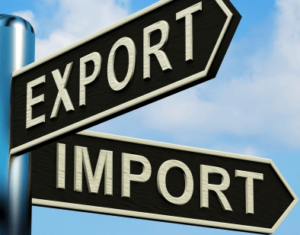GFI launches tool for analyzing trade misinvoicing
 The Global Financial Integrity (GFI) launches a database tool for measuring trade misinvoicing.
The Global Financial Integrity (GFI) launches a database tool for measuring trade misinvoicing.
Announcing the launch in a press release November 9, 2016 and copied to ghanabusinessnews.com, the GFI says the new database tool known as GFTrade— is a real-time price analysis to measure trade misinvoicing risks for 80,000 goods categories.
“Trade misinvoicing accounts for hundreds of billions in illicit financial flows from developing countries, and in curtailing these outflows, GFTrade would generate millions of dollars in additional domestic revenue,” it said.
Explaining trade misinvoicing, the GFI says, it is a method for moving money illicitly across borders that involves deliberately misreporting the value of a commercial transaction on an invoice submitted to customs.
“There are four primary reasons why an individual or business misinvoices trade: money laundering, directly evading taxes and customs duties, (fraudulently) claiming tax incentives, and dodging capital controls,” it adds.
Commenting, GFI Managing Director, Tom Cardamone, said “GFTrade is a game-changer for development. Developing economies lost at least $875 billion due to trade misinvoicing in 2013. That’s $875 billion that wasn’t taxed accurately or directed back into the domestic economy for investment and providing government and social services.”
According to GFI, the tool is a cloud-based dataset and interface with world market pricing for 80,000 Harmonized System (HS) codes and trade data from 30 countries, which conducted $7.5 trillion in trade in 2015, including seven of the world’s ten-largest trade economies (by volume) are included in the dataset: the United States, Germany, Japan, France, the United Kingdom, the Netherlands, and Italy.
Adding that, the US data alone represents approximately 10 million individual trades every month. Users, be they customs officers, other government investigators, or private sector trade facilitators, harness this huge database by simply entering in an HS code or a description and the quantity and price of that same good as recorded on the invoice. GFTrade displays in text and graphs if that invoice value veers significantly—over or under—from current prices and from the last 12 recorded months. With this information the user is empowered to see whether that invoice warrants investigation.
According to an earlier report on the nature and extent of trade misinvoicing in Ghana authored by the GFI, illicit financial flows experienced by Ghana from 2008 to 2012 due to trade misinvoicing, amounted to about $22 billion – more than half of the total flows since 1960 which is estimated at $40 billion, and the most affected products were cocoa, petroleum products and wood.
Exporters and importers in Ghana misinvoice trade volumes for private gain, to the detriment of the public coffers.
The GFI, however, noted that while some of the inconsistencies in trade can be attributed to accuracy challenges and statistical issues, deliberate misinvoicing can’t be ruled out.
Exporters use under-invoicing to avoid taxes and bring less foreign exchange into the country and leave the remaining in offshore accounts. Over-invoicing of exported goods is also used to take advantage of export subsidies, it said, adding that importers on the other hand, also under-invoice to avoid tariffs and over-invoice so that they acquire extra foreign exchange from the higher price which is false.
Export underinvoicing in Ghana in 2008, amounted to outflows of $3.148 billion while inflows amounted to $1.252 billion, both of them unmatched by any year since 1960, according to the trade data gathered by GFI spanning 1960 to 2012.
In 2009, inflows due to import under-invoicing increased reached another milestone of $1.32 billion, while outflows due to export under-invoicing fell to a conservative $807 million.
In the following year (2010) illicit outflows due to under-invoicing of exports again reached a record $4.785 billion while illicit inflows from import under-invoicing fell slightly to $1.222 billion. The year saw a high total of $6 billion in illicit flows from trade misinvoicing.
In 2011, over-invoicing of exports amounted to $1.834 billion while inflows from import over-invoicing amounted to $883.9 million.
The year 2012 recorded inflows of $6.903 billion. Import under-invoicing amounted to $2.3 billion while export over-invoicing reached $4.58 billion.
By Emanuel K. Dogbevi
Copyright © 2016 by Creative Imaginations Publicity
All rights reserved. This news item or any portion thereof may not be reproduced or used in any manner whatsoever without the express written permission of the publisher except for the use of brief quotations in reviews.
